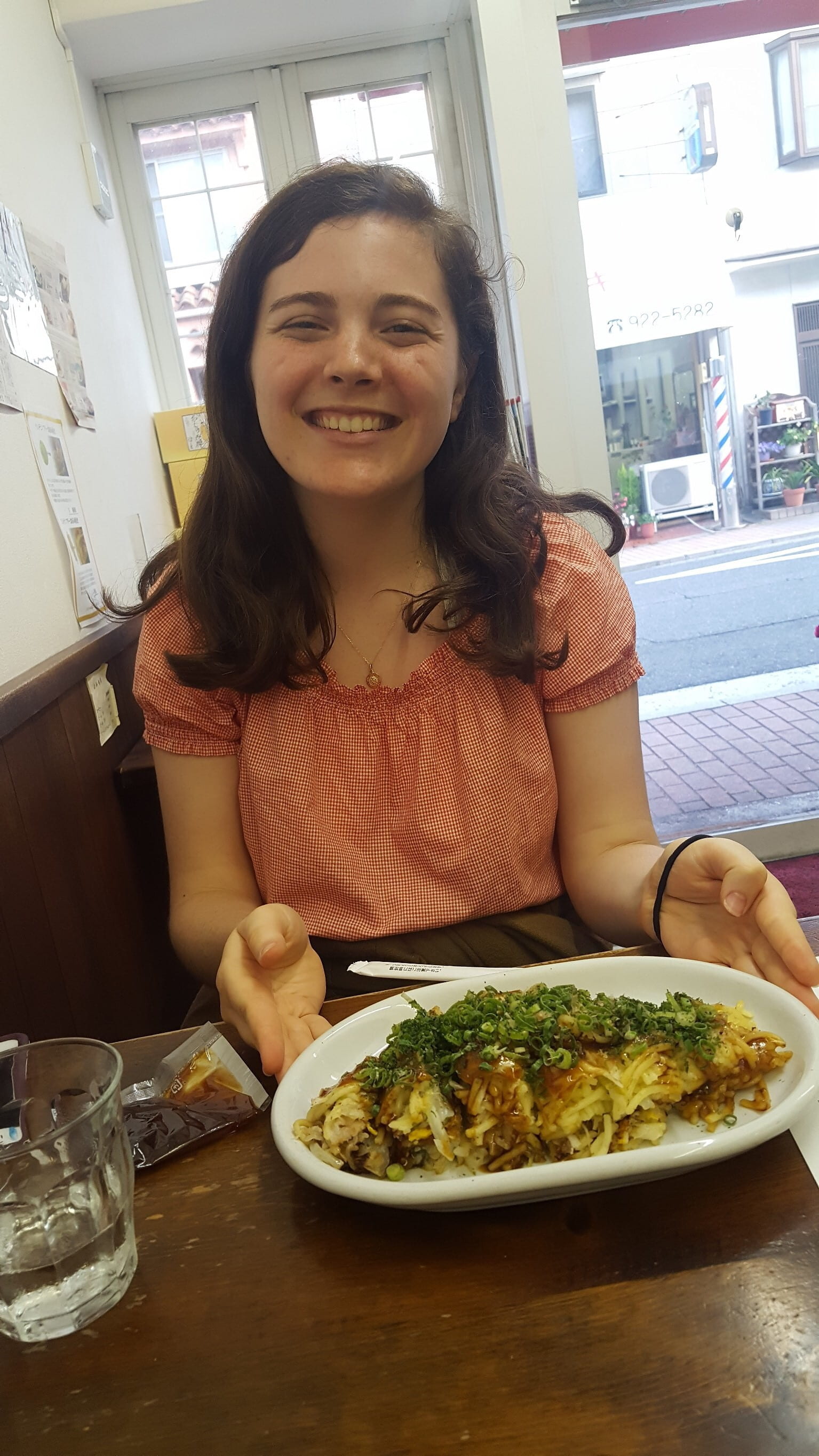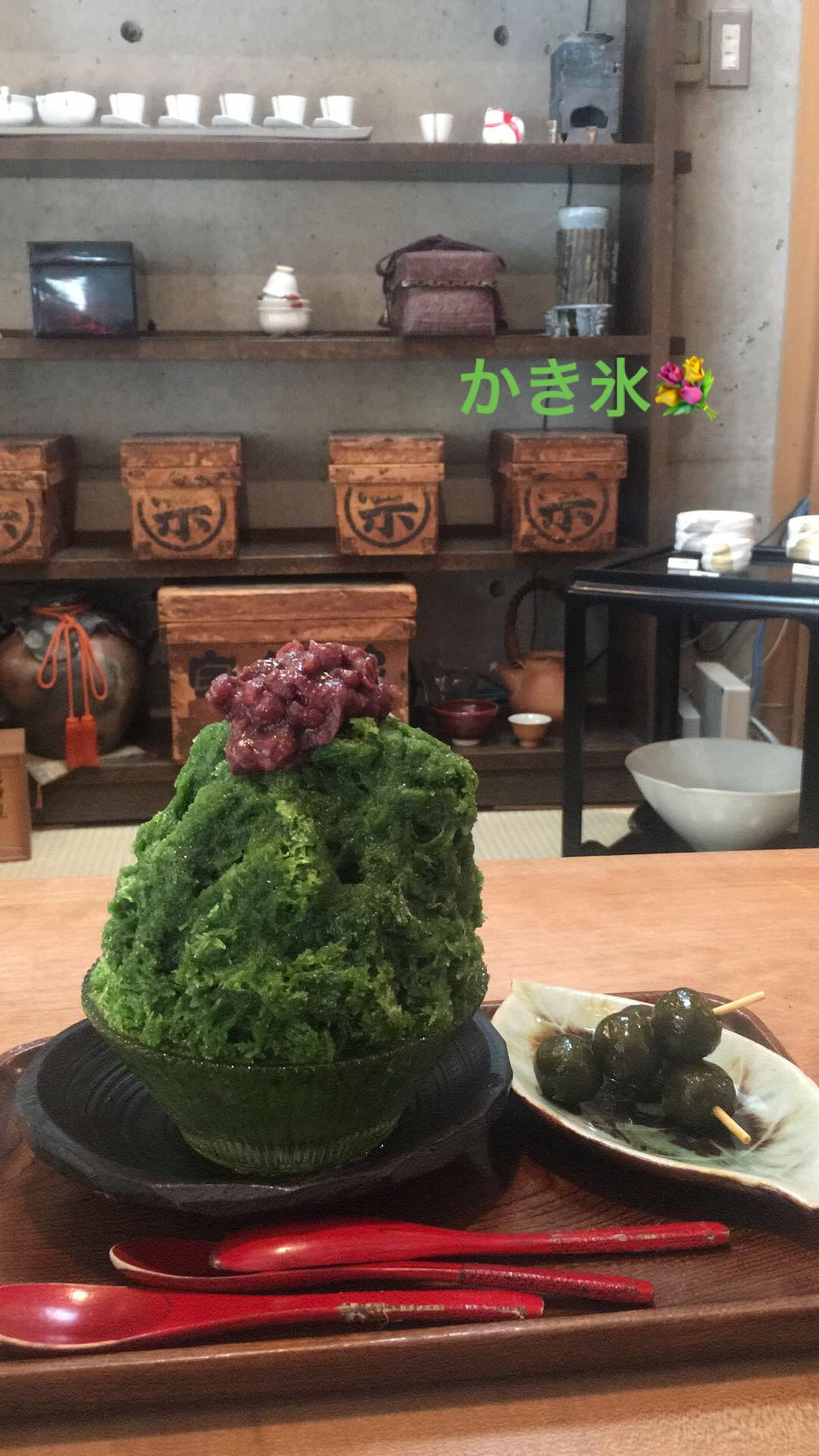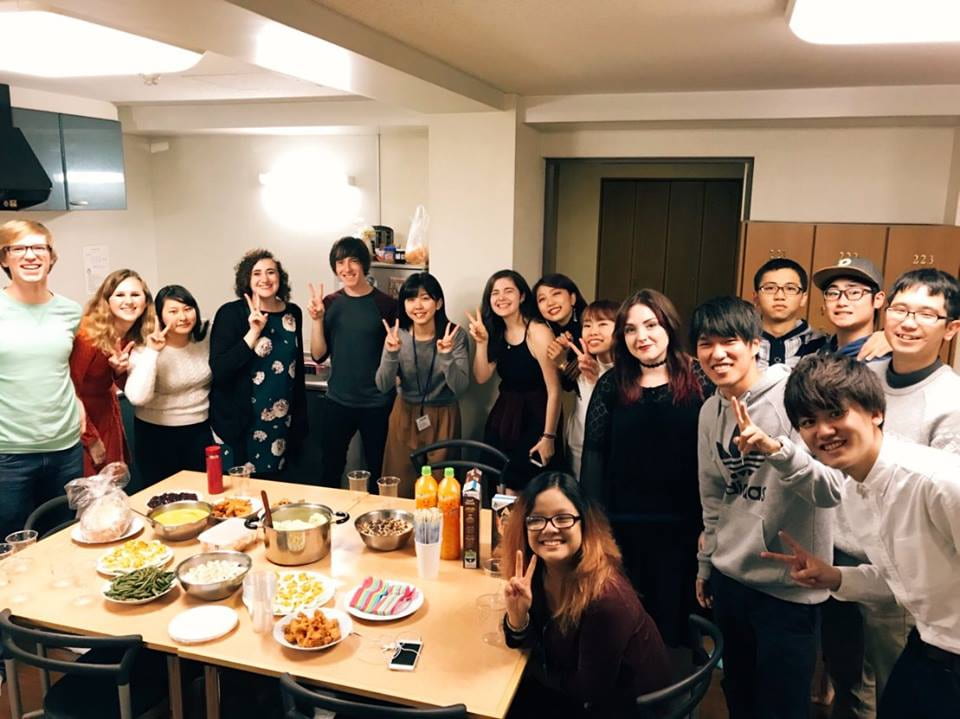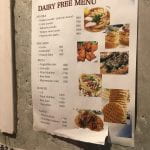Margaret Geanacopoulos is a Senior at Towson University majoring in International Studies. For the duration of her Junior year, Margaret studied abroad through a TU Exchange Program at Kansai Gaidai University in Osaka, Japan. Margaret also works at the Towson University Study Abroad Office as a Peer Advisor.
 Around the time I was seven years old, I decided that I was going to live in Japan someday. Growing up with Japanese movies, manga, and music, I always felt a strong connection to Japanese culture and wanted to experience it for myself. Around that same time, I was diagnosed with Celiac Disease, meaning I would have to adhere to a strict gluten-free diet for the rest of my life. Bummer.
Around the time I was seven years old, I decided that I was going to live in Japan someday. Growing up with Japanese movies, manga, and music, I always felt a strong connection to Japanese culture and wanted to experience it for myself. Around that same time, I was diagnosed with Celiac Disease, meaning I would have to adhere to a strict gluten-free diet for the rest of my life. Bummer.
However my allergies didn’t deter me from following my dreams anyway. When I was a junior at Towson, I studied abroad at Kansai Gaidai University in Osaka, Japan for 2017-2018 academic year. Although I was aware that many Japanese foods such as Ramen, Udon, and Melon Bread (which surprisingly doesn’t taste like melon) were made with gluten, I had no idea how much of a struggle eating gluten-free in Japan would be. Things as inconspicuous as soy-sauce, miso soup, and even rice-balls had gluten snuck into them. However, after a year of trial-and-error, here are some lessons that I learned that made travelling with food restrictions much easier.
Do your research
Before I left for my year in Japan, I spent a lot of time online researching what Japanese foods I could and couldn’t eat. Not only did I learn what foods to steer clear of, but I also found lists of gluten-free snacks and even entire restaurants that were gluten-free in the cities I would be travelling to. If your allergies require medication or the use of an EpiPen, make sure you have a sufficient amount before you leave and research how they could be potentially refilled if you’re staying for a long time. Besides saving you a lot of time and stress, knowing what foods to look out for and researching restaurants in your area ahead of time will let you focus on the more important aspects of your time abroad like making connections and gaining experience.
All three of these pictures were taken at restaurants that were completely gluten-free or had dedicated gluten free options! (Pictured: Gluten-free Okonomiyaki in Hiroshima, Gluten-free Carrot Cake at “Sunny Bread” in Seoul, and “Cafe Littlebird” in Tokyo, which is completely gluten-free and has dairy free options!)
Make a plan (and bring snacks)

Whether it was cooking a meal for myself to bring to school or stopping by a convenience store to buy some granola bars before a long day out, it’s always important to be prepared. At school, my friends usually ate at the cafeteria for lunch. I would check online what their menu would be for the following day, and if there were no available options for me I would meal prep a lunch the night before. When you’re travelling with friends who maybe don’t have any food restrictions, you never know when the group might spontaneously decide to stop and get something to eat. In case you might not be able to find something you can eat, it’s a good idea to have a couple snacks on you so that you can enjoy your time with your friends and not focus on your growling stomach.
Communicate your needs, and don’t feel bad about it
In American culture, it’s fairly common to ask for substitutions in restaurants or for restaurants to have designated allergen menus, so back home I had always been very vocal about my allergies to waiters and was met with minimal resistance. However, in Japan the culinary culture is very different. I had read online that most Japanese restaurants will be offended if you try to make substitutions to their menu or sometimes won’t allow it at all. When I first arrived I felt embarrassed having to ask if there was gluten in dishes, especially when the language barrier created some misunderstandings between me and the staff. Overtime I noticed that if I explicitly stated that I had an allergy and that’s why I was asking about their food, servers were much more understanding, and often went out of their way to accommodate me. There is nothing to be ashamed about having allergies. Don’t be afraid to communicate your needs! The more you do it, the better your experience will be.
*PRO TIP: If you’re not fluent in the language of the country that you’re studying in, you can print out cards that state your allergies that you can give to servers if they don’t speak English.
Don’t sweat the small stuff
I know firsthand how frustrating and scary travelling with allergies can be. For me personally, food is a huge part of my life and not having the stability of knowing when, what, and where I could eat would cause me a lot of anxiety. However, these challenging moments could never compare to the amount of life changing experiences I had while I was in Japan. While it’s important to do your research beforehand and be conscious of your allergies once you arrive, don’t let food restrictions become the main focus of your time abroad. Travel to new places, meet interesting people, and take advantage of all of the wonderful opportunities in front of you.

Some of the amazing friends I made with our homemade Japanese-American Thanksgiving!


